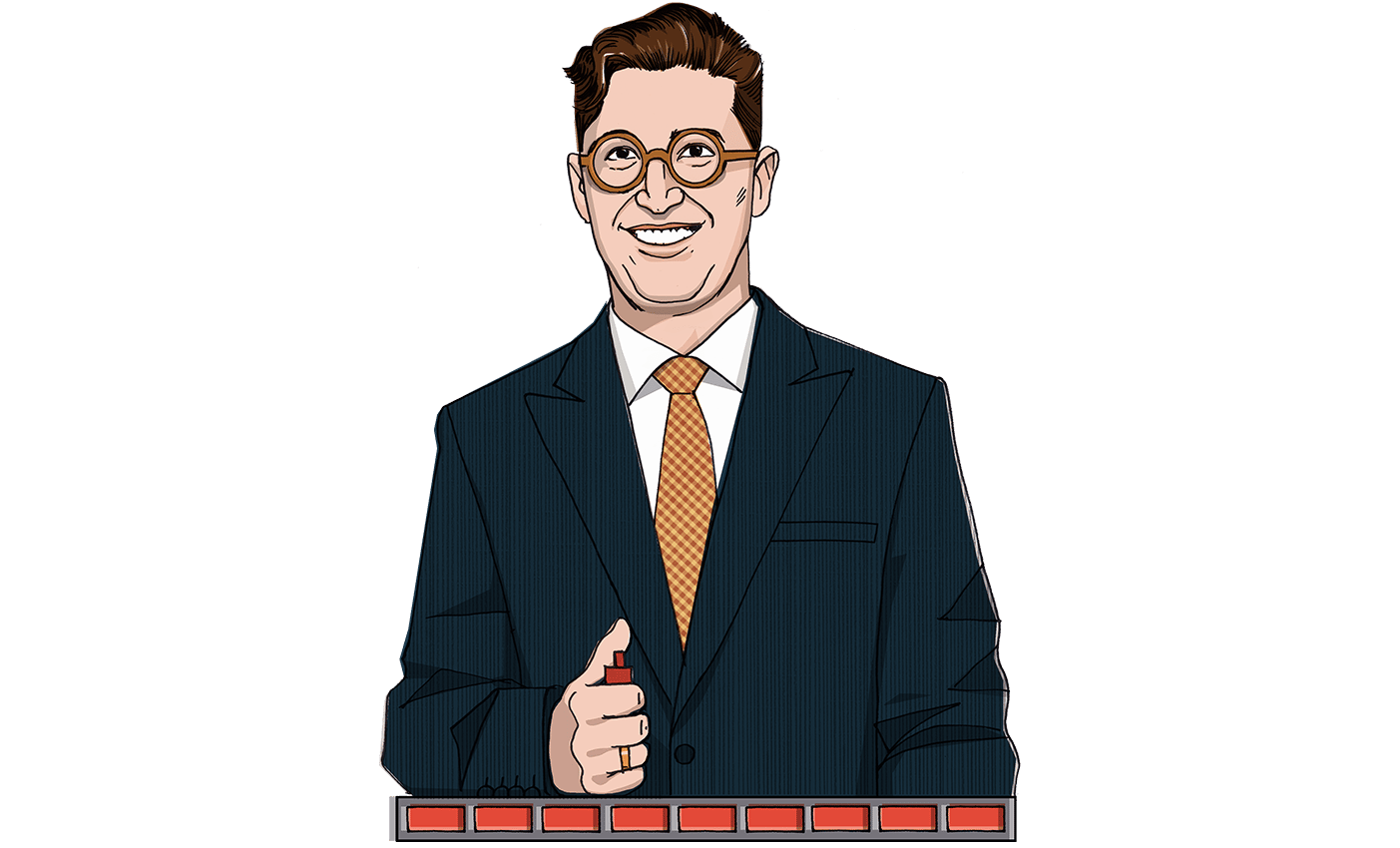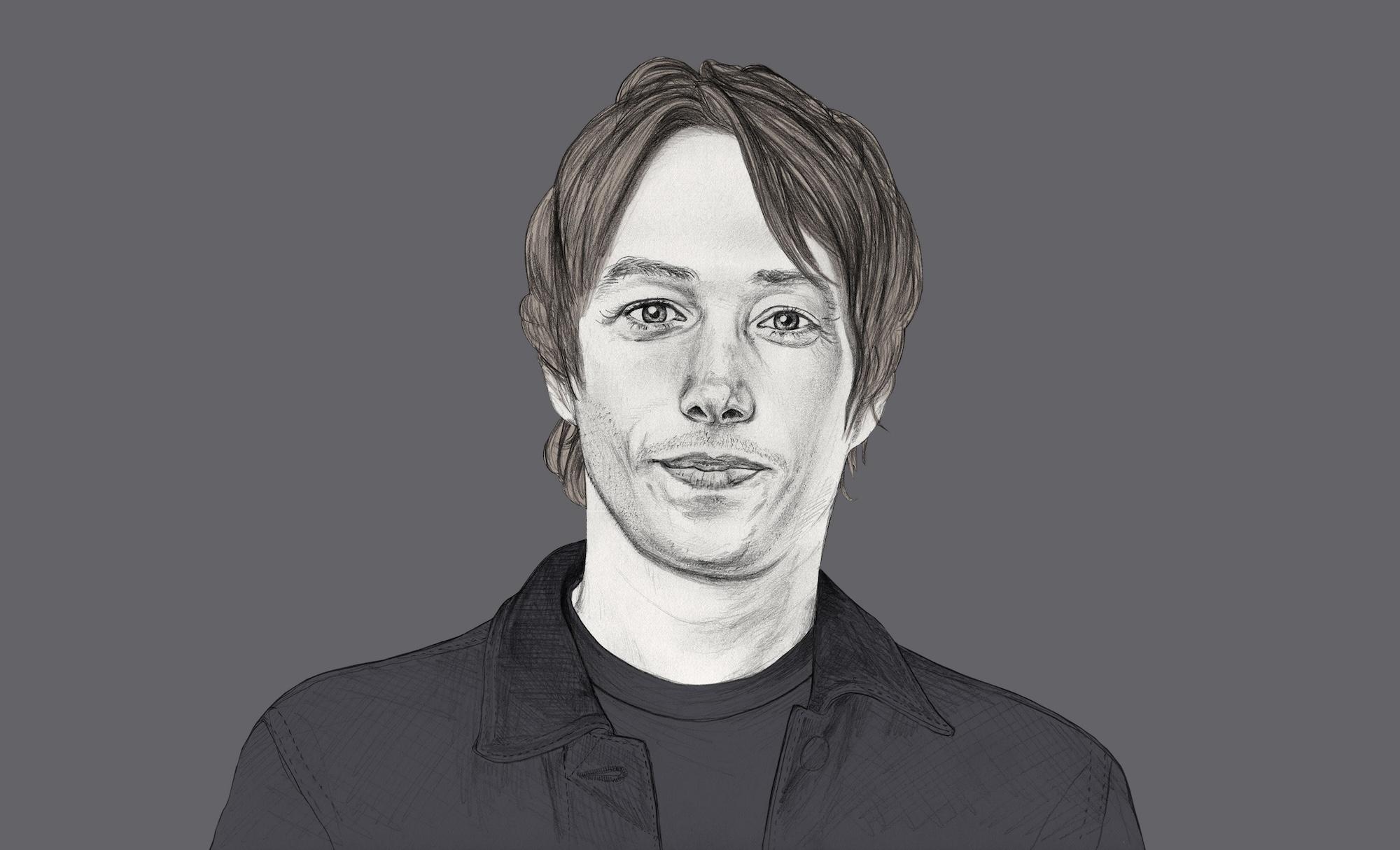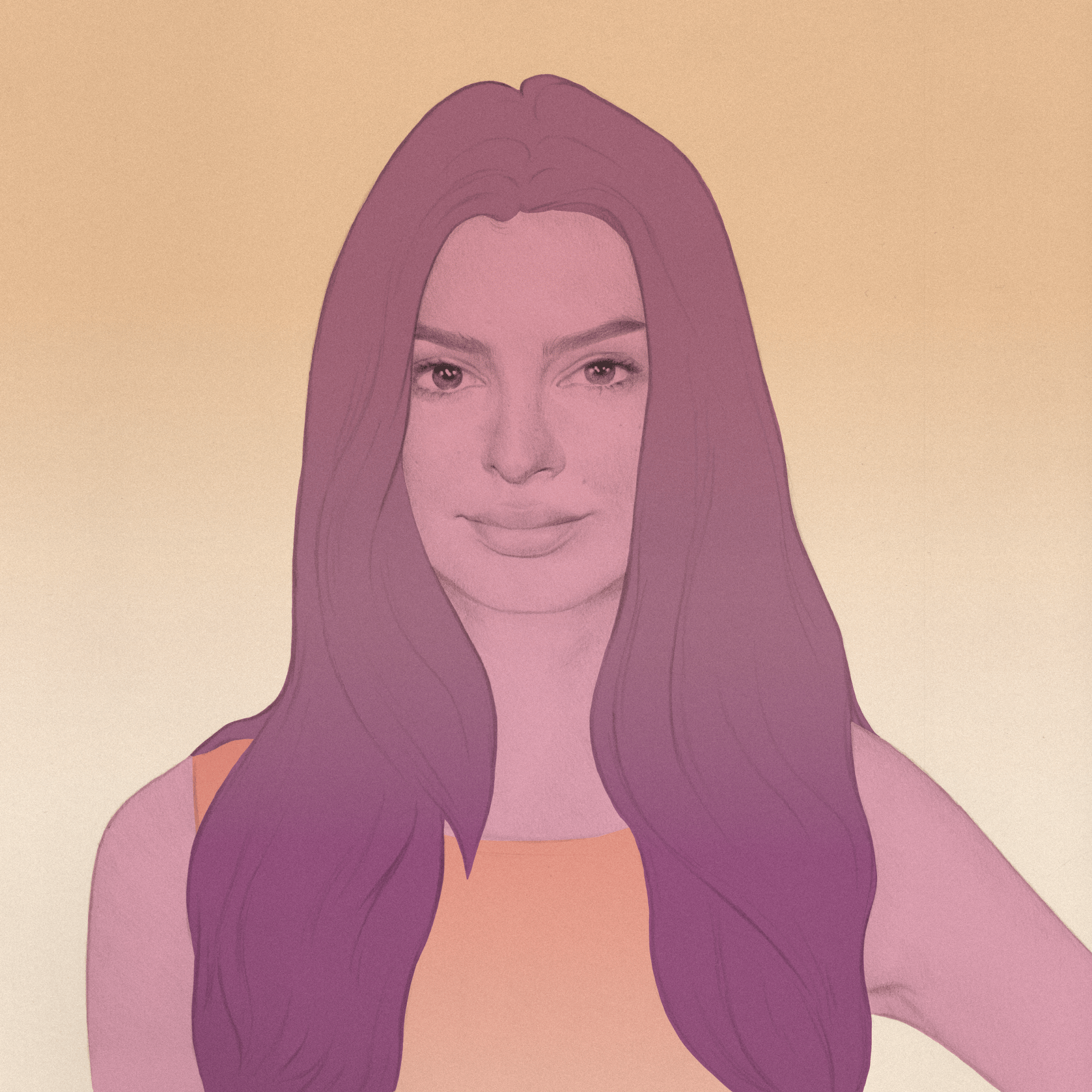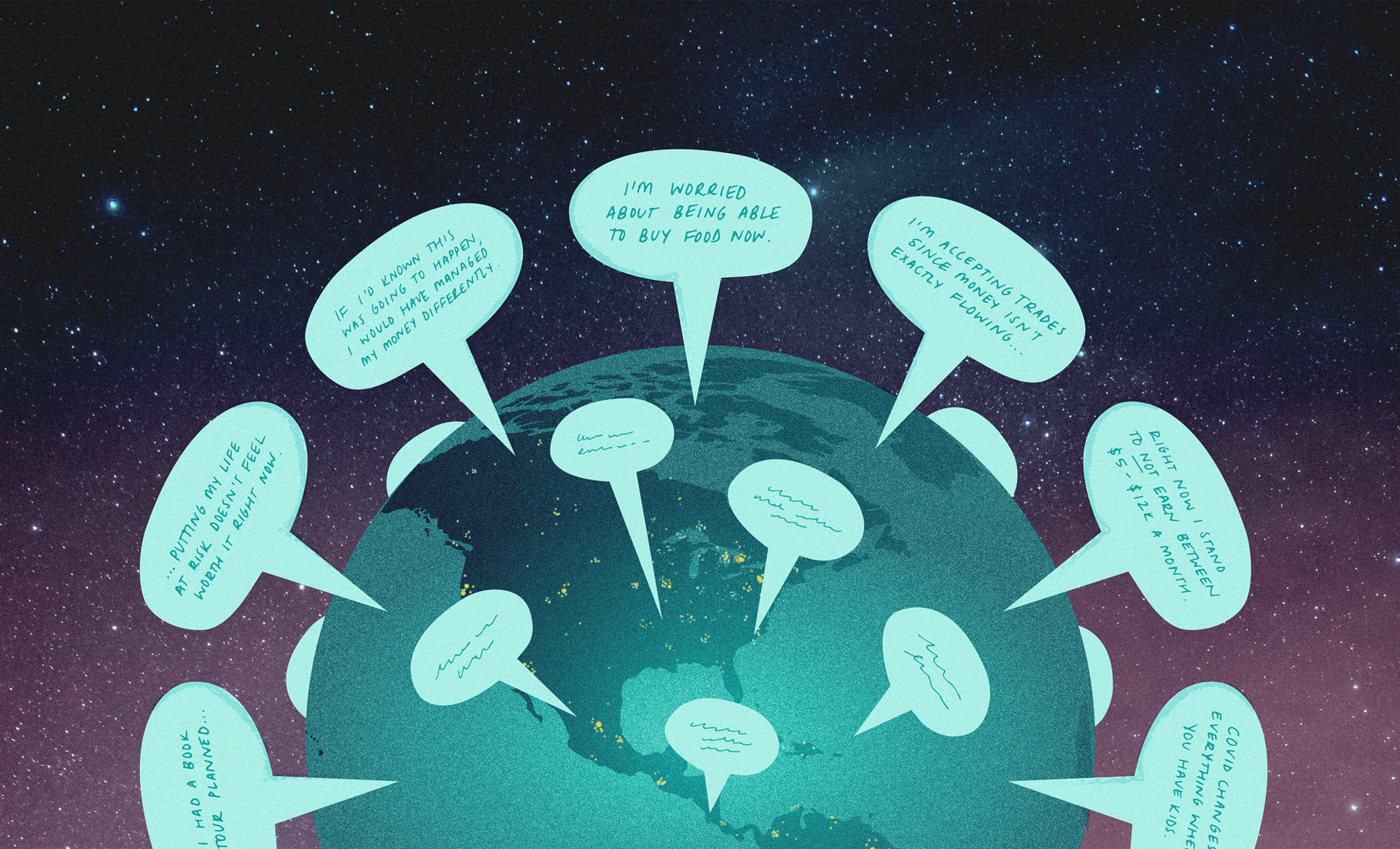
Money Diaries
The “See You Tomorrow, Trebek” Jeopardy Contestant on Winning Big and Becoming a Meme
How much does winning on a game show change your life? Buzzy Cohen, a 31-year-old music supervisor, tells the story of his controversial (don’t call it smug!) nine-game winning streak on Jeopardy.
Wealthsimple makes powerful financial tools to help you grow and manage your money. Learn more
Wealthsimple is a whole new kind of investing service. This is the latest installment of our recurring series “Money Diaries,” where we ask interesting people to open up about the role money has played in their lives.
I grew up in Short Hills, New Jersey, close to New York City, where my dad owned a clothing store called Sam’s. It was an affluent area—my friends’ dads worked on Wall Street, or at tech companies, or they were doctors or lawyers. Meanwhile, my dad spent every day on the floor of the store, and as a teenager, I started working there, too. That shaped my relationship with work and money.
Retail depends on people walking through the door of your store, and it can be unpredictable. If there was a lengthy midwinter cold snap, that meant fewer customers. If the town decided to redo the sidewalks and it took two weeks, the store would take a hit. Whenever business was bad, my dad would tell my siblings and me that we were going to have to move to a depressed town nearby. It became kind of a joke in our family. But what my dad instilled in all of us was a real respect for money. I’ve seen the hard work that goes into making money—and how fortunes can rise and fall due to external circumstances—so you have to be thoughtful about how you spend it. I’m not afraid to spend money on things, but I’m not cavalier, either. I sweat it.
I’d always loved Jeopardy. Last year, I applied to be a contestant by taking a 50-question timed test online. A few months later, I was invited to a live audition with about 30 to 40 other people. They do another 50-question test and a mock game to see what you’re like on camera and get a sense of your personality. Then, in January of this year, I got the call to be on the show.
"For several weeks, I had to keep the fact that I’d won a secret from everyone but my wife. And then all of a sudden it’s on TV and the whole country is reacting."
My first game, I was up against two really strong competitors, including a guy who’d won six times in a row. Before we started, they took us to get makeup put on, and I asked the makeup artist, Sandy, “How good is this guy?” And she said, “He’s really, really good.”

Sign up for our weekly non-boring newsletter about money, markets, and more.
By providing your email, you are consenting to receive communications from Wealthsimple Media Inc. Visit our Privacy Policy for more info, or contact us at privacy@wealthsimple.com or 80 Spadina Ave., Toronto, ON.
A few seconds before I went on stage, it hit me for the first time that I was actually going to be on Jeopardy. It was pretty insane, and I suddenly got nervous.
But then I got out there and just stayed focused and had fun. And I started winning! The first few games, I had a lot of luck and kept squeaking by. In one game, another guy was ahead going into Final Jeopardy, but he got tripped up on a question that he just overthought. The category was Literary Quotes, and the question was about which book had used a line from Leviticus: “The blood is the life.” I went with the book Dracula, which turned out to be right. I figured I was dead in the water, but then I saw that he was slumped over. He guessed a super-obscure book—one that would have been too hard for a clue on Jeopardy—and I ended up winning. The guy was super smart, but sometimes our strengths can be weaknesses, too.
What people don’t realize is that they tape a whole week of shows in one day, so you play one game, race backstage to change your clothes and hurry back out for the next game—so on TV, it’ll look like a different day. OK, so I was squeaking by and then, in my sixth game, I had what’s called a “runaway,” which is when going into Final Jeopardy I had more than twice as much as second place, so as long as I didn’t risk much money, I was guaranteed to win. Before I went on the show, my dad had asked me, if I had a runaway, to shout out his store during Final Jeopardy and make my answer “Shop at Sam’s.” But we were warned we couldn’t plug anything. The question was a tough one about the Great Lakes. Rather than pull up a mental map and try to solve it, I decided to just gamble zero dollars, and write, “See you tomorrow, Trebek.”
It was totally impulsive. I was taking on the tone of those great Saturday Night Live skits parodying Jeopardy. Some people thought I was taunting [host Alex Trebek], but I wasn’t trying to be as snarky as it may have come off. I was just being playful and irreverent and relishing my experience. I was also kind of playing with the fact that even though these shows are broadcast one night at a time, they’re all taped right in a row—by “tomorrow,” I really meant, “See you in 10 minutes.”
What I never expected was that two more games would also be runaways. In Final Jeopardy in game seven, I wrote as my guess, “You aren’t rid of me yet, Trebek.” In game nine, I wrote, “What is ‘Once more, Trebek, once more.’” Amazingly, that answer has fueled conspiracy theorists on Reddit who think I threw my last game because I wrote “Once more,” and they somehow believe that I’d known I’d only be on the show for one more game.
I lost in my tenth game. I couldn’t be disappointed because everything that had happened was so beyond my wildest dreams. I’d won $164,000 in two days.
When I was growing up, it was really driven home how careful I had to be if I wanted to buy something expensive (or ask my parents to buy me something expensive). I was a musician—piano, saxophone, and guitar, mostly—and when I was 13, I wanted to buy a four-track recorder that cost almost $1,000. This was going to be a huge investment for me, so my parents made sure I researched the prices of all the various models and tested them all to see which one best suited my needs.
Another principle my mom and dad beat into me was not spending more money than you had. For the longest time, I didn’t have a credit card. I figured I’d just always pay cash. That way, I’d never be spending money I didn’t have and could never go into debt.
But when I moved to L.A. in my mid-20s, I wanted to buy a car. I didn’t have a house or kids yet, and I was making pretty good money. Before I could get a car loan, though, I was told I needed to develop my credit. I remember walking into the bank and asking, “How do I build up my credit quickly?” And they said, “You need to rack up debt and pay the minimum on the credit card—not the full amount.” That sounded odd to me, but I had a friend who explained it. “Basically,” he said, “what they’re trying to assess is not how good you are about paying your credit-card bill every month. They want to see if you can get out of trouble.” I remember being really bothered that because my whole life I’d spent only what I had, it was hard to get a loan.
After I finished Jeopardy, it was just kind of this emotional release. My high-school English teacher, who’d retired to Santa Monica, had come both days to cheer me on in the studio. We went out for a bite and just kind of soaked in all that had happened—winning nine games of Jeopardy in a row. Then I went back to my office.
What’s weird is that we taped the shows in March, but they didn’t air until April and May. So for several weeks, I had to keep the fact that I’d won a secret from everyone but my wife. And then all of a sudden it’s on TV and the whole country is reacting. The nature of social media is that people who say extreme things are more likely to gain traction and be retweeted or have their Facebook posts shared. So people have been trained to give extreme reactions online. Nobody tweets, “I don’t know how I feel about this.” They say, “Buzzy Cohen is a loser!” or “Buzzy is a dreamboat!” Hot takes have to be hot.
Honestly, all the haters that appeared were entertaining to me. It didn’t hurt for strangers to make fun of me, no matter how vitriolic they became, because my self-worth isn’t based on someone’s response to my performance on Jeopardy. Somebody found my Facebook profile and sent me a message: ‘You are a colossal douche.’ That made me laugh. I mean, here is a guy who went and found the Facebook page of somebody he saw on a game show and sent him a message saying “You are a colossal douche.” He kind of became his own punch line.
The only thing that made me uncomfortable was all of the fake, impostor Twitter, Facebook, and Instagram pages that popped up—people pretending to be me. I was able to get the Facebook and Instagram pages down, but I haven’t been able to get the Twitter page removed, and that's icky to me because people are tweeting to it and posting to it. All of a sudden, some stranger has ownership over my voice.
For the most part, though, the response from people was thrilling. Friends from all over the country from various parts of my life that I hadn’t been in touch with for years were reaching out, and it felt great. People kept inviting me to Trivia Night so I could be their ringer. And now strangers stop me on the street to say hi or get selfies with me—everywhere from the movie theater to the grocery store to the Integratron, an acoustic sound bath in Joshua Tree.
A lot of folks ask what I’m going to do with the money. But $164,000 is a weird amount. Maybe a hundred grand, after taxes. That’s not “quit your job” money. But it’s enough to start a college fund for my daughter. And then treat myself to something special, something more than just a nice dinner. Maybe some kind of $10,000 treat that I would never spring for ordinarily. But I actually can’t think of anything specific right now that I want. So I’m just going to carry that ace in my back pocket. It’s a good feeling to know that when I do see something I want—a special trip or whatever it might end up being—I can just plunk the money down. After being so responsible with money since I was a kid, it will be nice to find just the right moment to be irresponsible.
As told to Davy Rothbart exclusively for Wealthsimple. We make smart investing simple and affordable.
Wealthsimple's education team is made up of writers and financial experts dedicated to making the world of finance easy to understand and not-at-all boring to read.









